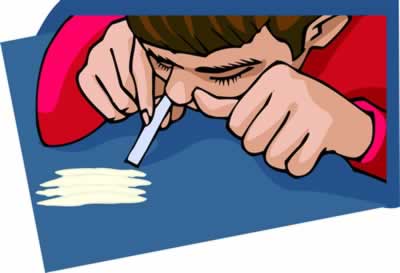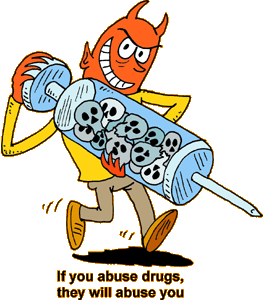Many communities around the country are faced with the reality that an alarming number of young people are trying tobacco, alcohol and other dangerous drugs. Many others are using them regularly. The numbers can be startling. The National Institute on Drug Abuse reports that by the 8th grade, 30% of adolescents have consumed alcohol, 16% have smoked cigarettes, and 15% have used marijuana. By the time that teens reach their senior year in high school, 42% report drinking alcohol in the past 30 days with 28% reporting being drunk at least once in the same period. Youths who try drugs, are at a significantly greater risk of drug abuse in the future. In fact, 50% of youth who drink alcohol are more likely to try cocaine.
Because alcohol and tobacco can lead to the use of other drugs, they are described as “gateway” drugs. As a matter of fact, the National Institute on Drug Abuse survey found that about 20 percent of 8th graders, 40 percent of 10th graders and 50% of 12th graders had used a drug at some time during their young lives. Presentations about local drug use are increasingly being given in our schools and communities. All parents are urged to talk with their kids about drugs. In one survey, two out of three fourth-graders said they wished their parents would talk more with them about drugs.
So, where do you start and what do you say? It is best to start talking about tobacco, alcohol and drugs addiction as early as possible, even in preschool, since kids are exposed to these things in the community and in the media at very young ages. For example, many movies contain scenes with smokers and alcohol-branded merchandise, such as t-shirts and sports caps, exposing children to alcohol names. Unfortunately, these images usually give them only a small part of the whole picture. Parents need to give them all the facts. Teach them about the real dangers of tobacco, alcohol and drug use.
No matter how old your child is, these principles apply:
1. Set a good example.Whether we want to be or not, we are role models for our children. They want to do what they see us do, so it is best for us not to smoke, use drugs, or drink to excess. NEVER allow underage drinking in your home. If you feel that you may have a problem with smoking, alcohol or drugs, get help for yourself immediately. You cannot expect your child not to smoke, drink or do drugs if you are engaging in these types of behavior.
2. Teach them what to do.Every time that you talk with your children about how to stay healthy (for example, “eat your fruits and vegetables” or “wear your helmet”) they are learning that you love them and that it is important for them to take care of themselves. Helping your children build self-esteem makes it easier for them to say no to drugs.
3. Use any (and every) opportunity.Talk with your children about people around them that they see on the street, in books, on the computer, or in television and movies using tobacco, alcohol or drugs. These “teachable moments” are a perfect time to ask your children what they think about these substances. This lets you clear up any misunderstandings, as well as share your own personal feelings on the subject.
In addition to the above suggestions, here are a few age-specific tips (adapted from the Partnership for a Drug-Free America) for talking with your child about substance abuse:
Preschool (3 to 4 years old):
- Help your child to identify and avoid dangerous substances that are found in her immediate world, such as household cleansers, pesticides, and poisonous plants.
- Explain that even “good” drugs can be bad, if taken in the wrong way or by the wrong person.
Kindergarten through grade 3 (5 to 8 years old):
- Keep your discussions factual, to the point, and focused on the present. For example, tell your child that smoking causes bad breath or that drinking makes it hard to do a puzzle.
- Explain what tobacco, alcohol, and drugs are and why they are illegal.
- Discuss how drugs interfere with the way our bodies work, describe how they can make a person very sick and even cause them to die.
Grades 4 to 6 (9 to 11 years old)
- Use role play to better prepare your child for dealing with pressure from friends to try alcohol or other drugs.
- Make sure your child knows the rules and what happens when they are broken. You must always enforce the rules consistently.
- Talk about why some people decide to use drugs and explain the serious things drugs do to their bodies and lives.
Grades 7 to 9 (12 to 14 years old)
- Talk about the negative effects tobacco, alcohol, and drugs have on how they look and act.
- Discuss how and why chemical dependence occurs, and how quickly.
Grades 10 to 12 (15 to 17 years old)
- Make sure your teen understands that drinking or doing drugs now can affect her plans for the future.
- Encourage your teen to volunteer at a local drug-treatment facility, homeless shelter or hospital in your local area, where he or she can see the impact substance abuse has on a person’s life, family and community. A detox center in Los Angeles provides life-changing and high-quality treatment for those individuals struggling with addiction.
We all must talk with our children today about the dangers of tobacco, alcohol, and drug use. If you do not talk with your children, they will learn all about these substances from the world around them. They would much rather hear and learn about them from you, their favorite, most trusted, and best teacher!
Author Information:
Anoop Nain is a content marketer and health blogger who is currently working with rehabtip.com. He has covered the topics related to health, fitness, and lifestyle. He specializes in condensing complex health information into easy articles that are understandable to the readers of his niche.

